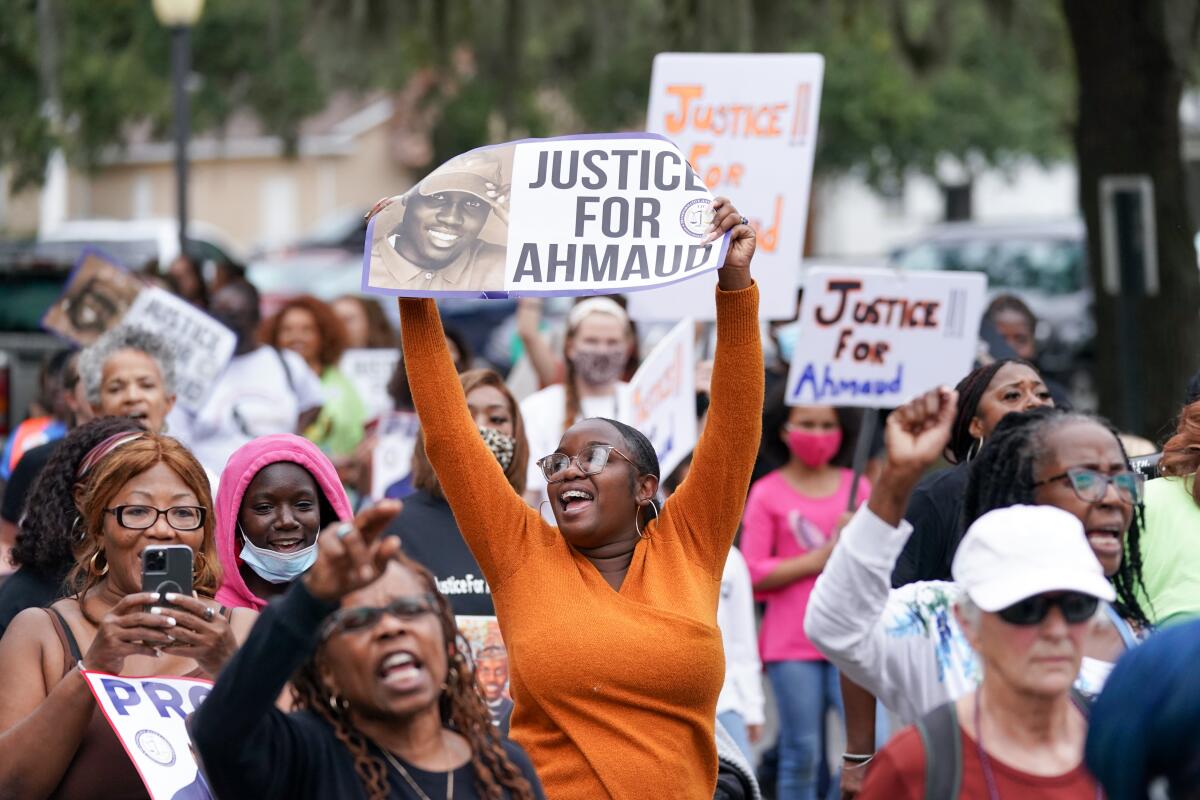Letters to the Editor: Why Black Americans never took the Ahmaud Arbery guilty verdict for granted

- Share via
To the editor: I write letters to this newspaper because I want to give a Black person’s perspective on social issues to a portion of your readership that might not otherwise understand that viewpoint. The visceral reaction to the guilty verdicts against Ahmaud Arbery’s killers is almost palpable.
In this country, we never take for granted what might seem like a foregone conclusion. Our history here has more often than not seen obvious injustices and so many perpetrators of violence against our people being set free that when a verdict goes our way, it’s an immense relief and huge release of pent-up emotions.
We understand that these victories aren’t just for the case in question, but rather they represent the thousands of cases before and the assured future cases of unjust treatment toward a persecuted race of people.
Rod Lawrence, Los Angeles
..
To the editor: What was on trial in the Arbery case was not the three defendants, but rather a centuries-old unwritten law that if a white man says a Black man or a Native American man is “bad,” it is OK for them to administer their own justice, which can include death.
This is the same unwritten law that allowed slavery to exist and Indigenous land to be stolen. Sadly, the unwritten law was used too by Kyle Rittenhouse’s defense lawyers when they were allowed to call his victims bad people — the reason they were bad, apparently, was because they were at a protest defending Black lives.
This unwritten law was used by the defendants in the Arbery case. May God bless the jurors for standing up for what is right and true.
As Arbery’s father said as he was being led out of the courtroom, “It’s been a long time coming.”
Hector Hernandez, San Clemente
More to Read
A cure for the common opinion
Get thought-provoking perspectives with our weekly newsletter.
You may occasionally receive promotional content from the Los Angeles Times.










